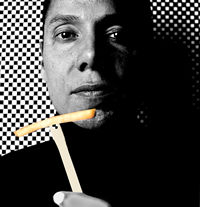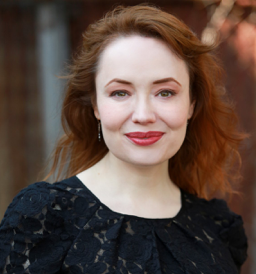Sitting in his office on the 21st storey of the Condé Nast building on Manhattan’s 42nd Street, Malcolm Gladwell (BA 1984 Trinity) warms to his subject. “The piece I’m working on now is about whether French fries can be saved,” he says. Saved? They’re not endangered, after all – they’re ubiquitous. But that’s exactly Gladwell’s point – this derivative of the humble spud outweighs vegetables in popularity, yet has no redeeming nutritional value. “Like all great questions, it’s more complicated than it sounds,” he says. “What are the consequences of fries being irresistible?”
It may seem like a small question, but as a staff writer at The New Yorker, Gladwell specializes in taking everyday matters and turning them into thought-provoking pieces. His research into topics as diverse as influenza, shopping, infant development and hair dye has formed the basis of a series of must-read articles. One such article, “The Tipping Point”, about the decline of New York’s crime rate, became the cornerstone of Gladwell’s book of the same name, published by Little, Brown in March 2000. The Tipping Point: How Little Things Can Make a Big Difference examines how ideas gain momentum just as a medical epidemic does. “Behaviour and ideas can be contagious,” he explains. “Crime is contagious, smoking is contagious among teens, delinquency and teenage pregnancy are contagious. But good things are just as contagious, and they can spread just as quickly.”
Gladwell’s melding of science and sociology can perhaps be traced back to his parents: his father is a professor of civil engineering at the University of Waterloo and his mother is a family therapist. He grew up in Elmira, Ont., where, in his last year of high school, he and two friends started a magazine they called Ad Hominem. He brought the magazine with him when he came to Trinity College to study history. “It was filled with flamboyant, overheated essays on whatever,” he says. “The only rule was that you had to attack someone or something. Then we’d turn around and solicit attacks on the pieces we had run.” He also became involved in a student newspaper called Trinsight (which has since reverted to its original name of Salterrae). “It was a random collection of weird, brilliant rants,” he says. “It was truly inspired.”
Not only did the college provide him with an outlet for his creative talent, it helped shape some of his ideas about community. In The Tipping Point, he writes about how communities can break down when they grow too large; by contrast, what he saw at U of T showed him how communities can coexist within a larger framework. “The fact is that the university is divided into communities through its colleges,” he says. “Trinity was a perfect community.”
After graduating with a BA in 1984, Gladwell headed south of the border to Bloomington, Ind., for a five-month stint interning at The American Spectator, a political journal. From there he headed to Washington, D.C., where he freelanced for two years before taking a job as a business reporter at The Washington Post; he soon switched over to a science beat. Six years later he was transferred to head up the Post‘s New York City bureau. As if that weren’t enough to do, he started moonlighting, writing freelance pieces for The New Yorker. In 1996, he says, “I realized I was being unfair to my employer,” and he resigned from the Post to join The New Yorker full time.
Of course, The Tipping Point drew him back to moonlighting, not only in the writing of it, but also in promoting it. Gladwell says he never anticipated the tidal wave of interest that swelled around the book. “You expect only your mother to read it,” he says. “But it really has broadened my audience, especially in the business world.” And while he has relished the ability to speak to more readers, the trade-off has been his rising profile. “Magazine writing is anonymous in many ways, but when you write a book, you are strongly identified with it.” While he says that he is self-conscious about giving interviews, he managed to do a “Lunch with” Jan Wong, the Globe and Mail columnist. Things were going just fine until Wong asked him who made the suit he was wearing. “I didn’t want to tell her. Somehow it was going too far,” he says.
Which is not to say that Gladwell is shy about self-expression. Last January he created the Web site www.gladwell.com to warehouse his published essays. “I’m clearly someone who likes to put what I think into words, and I will create an outlet to do it,” he says. An idea for his next book is gestating at the moment. But he insists that he is caught up in the here and now. “I never think about the future. I am not a planner,” he says. “I write about what is the most interesting to me at that moment.” And today, that happens to be French fries.
Hilary Davidson (BA 1994 Victoria) is a writer who divides her time between Toronto and New York.
Recent Posts
For Greener Buildings, We Need to Rethink How We Construct Them
To meet its pledge to be carbon neutral by 2050, Canada needs to cut emissions from the construction industry. Architecture prof Kelly Doran has ideas
U of T’s 197th Birthday Quiz
Test your knowledge of all things U of T in honour of the university’s 197th anniversary on March 15!
Are Cold Plunges Good for You?
Research suggests they are, in three ways





